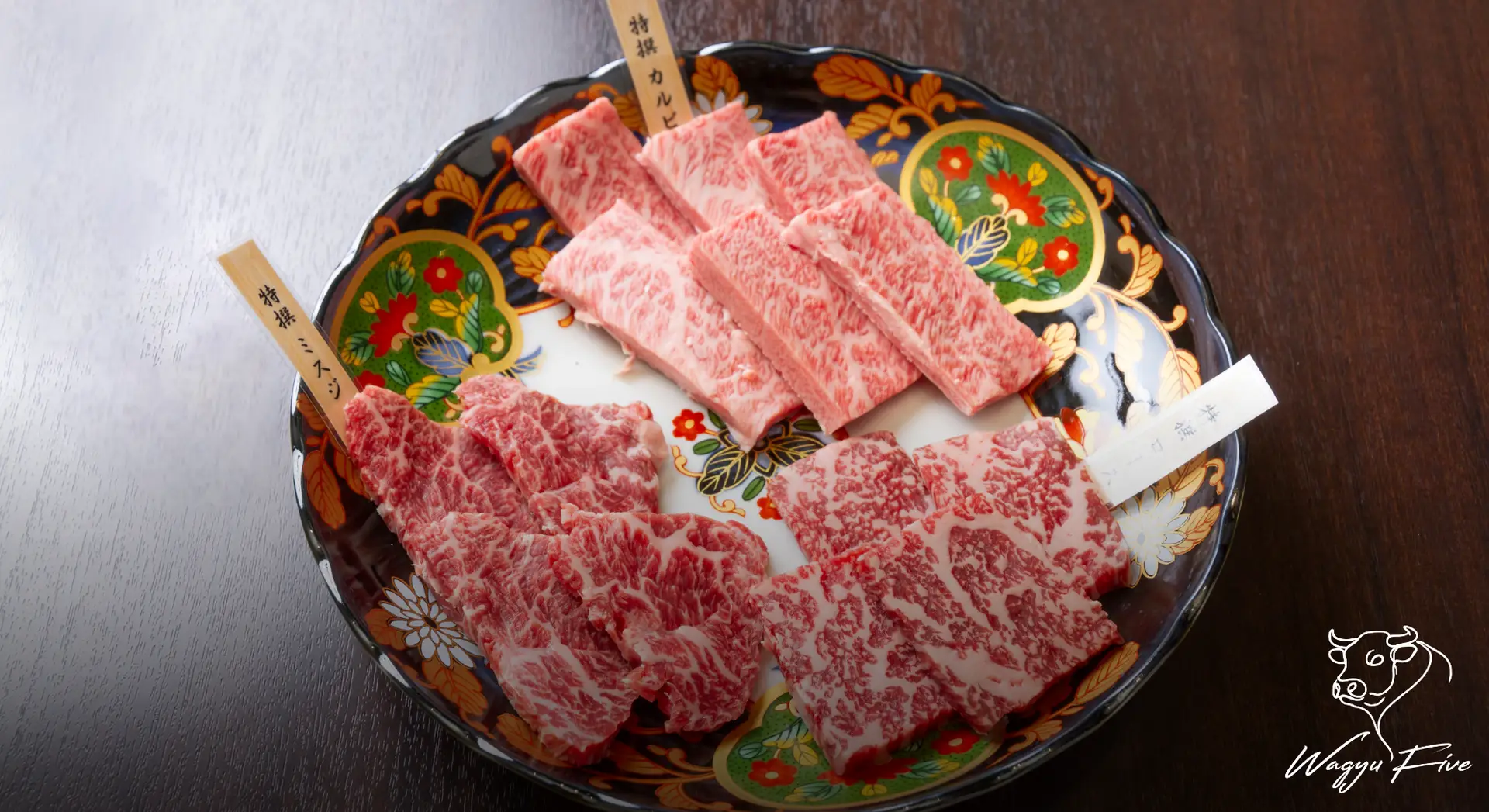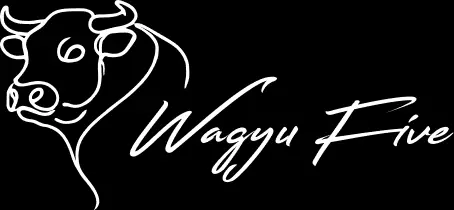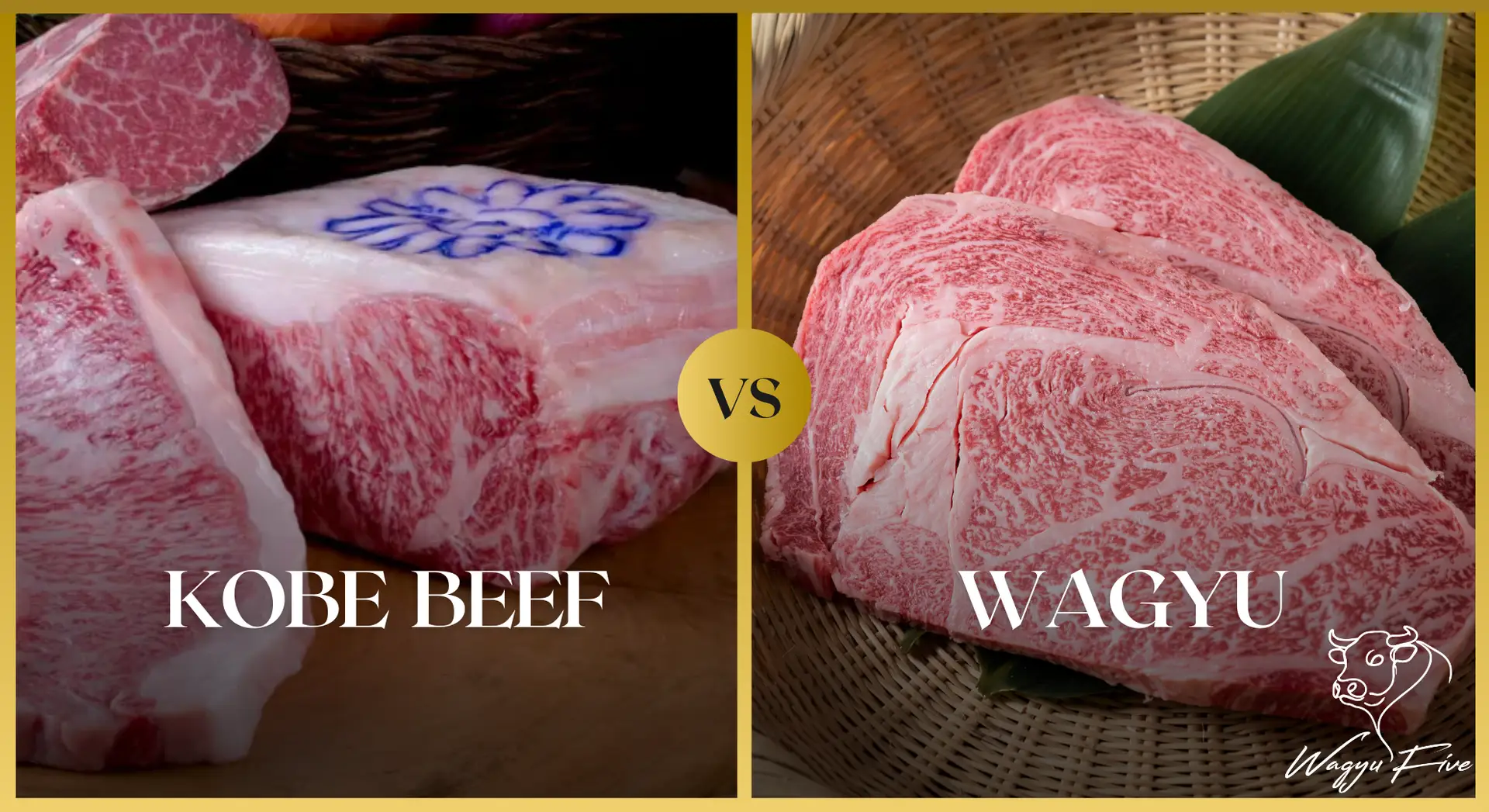Wagyu is a top choice for steak lovers worldwide, of course including the Philippines. Within that term, Wagyu, there is a type called Kobe Beef. While Kobe beef is a special type of Wagyu, not all Wagyu qualifies as Kobe beef. The difference comes down to where the cattle are raised, how they are bred, and the strict standards used to grade their quality, texture, and flavor. This guide breaks down the differences, Kobe Beef vs Wagyu, helping shoppers in Metro Manila choose genuine, high-quality beef and steer clear of imitations.
Wagyu Beef
Wagyu Beef refers to high-quality beef that comes from four main Japanese cattle breeds, specifically bred for their unique marbling, tenderness, and flavor. The term “Wagyu” is derived from Japanese: “Wa” meaning Japanese, and “gyu” meaning cow. This category includes four primary breeds:
- Japanese Black (Kuroge Washu): Known for its intense marbling and high-fat content.
- Japanese Brown (Akage Washu): Often leaner with a distinct red color, providing a slightly different taste and texture.
- Japanese Shorthorn (Nihon Tankaku Washu): Known for a balanced, mild flavor.
- Japanese Polled (Mukaku Washu): The rarest breed, with a robust flavor profile.
Characteristics of Wagyu Beef
Wagyu beef is celebrated for its high intramuscular fat, which appears as marbling—tiny veins of fat that run through the meat. This marbling gives Wagyu its famous tenderness and buttery flavor, as the fat melts into the meat while cooking. The Japanese system grades Wagyu based on yield (A-C) and quality (1-5), with A5 being the highest grade. Only a fraction of Wagyu beef produced globally achieves this rating.
Wagyu cattle are raised under strict standards to ensure consistency in quality. The cattle are given special diets, which might include rice straw, corn, and barley, and raised in low-stress environments to encourage even fat distribution. Many cattle are also raised with practices that limit movement, fostering a unique texture and taste that distinguish Wagyu from other beef types worldwide. The top-rated Wagyu is incredibly flavorful, boasting a richness and tenderness that has captivated chefs and food enthusiasts globally.
Kobe Beef and What Makes it Different
Kobe Beef is a specialized, ultra-premium category of Wagyu beef, specifically from Tajima-Gyu cattle raised in the Hyogo Prefecture of Japan, where the city of Kobe is located. Although Kobe beef is a type of Wagyu, it has its own strict standards and is only a small subset of Wagyu beef. Kobe beef is renowned as one of the finest meats in the world, famous for its exceptional tenderness, unique flavor, and intense marbling.
Criteria for Kobe Beef
For beef to be labeled as “Kobe beef”, it must meet every stringent criteria:
- Breed Requirement: Only Tajima-Gyu, a specific strain of the Japanese Black breed, qualifies.
- Regional Requirement: The cattle must be born, raised, and slaughtered in Hyogo Prefecture.
- Quality Standards: The beef must score a minimum of 6 on the Beef Marbling Standard (BMS) and achieve an A4 or A5 quality grade.
- Certified Processing: It must be processed in a Hyogo-certified slaughterhouse.
- Authenticity Verification: Each Kobe beef cut carries a unique 10-digit ID number for traceability.
Unique Flavor and Texture of Kobe Beef
Kobe beef’s marbling is typically more intricate and finely dispersed than even top-grade Wagyu, which contributes to its rich, melt-in-the-mouth experience. The finely marbled fat delivers a smooth, delicate flavor profile that makes Kobe beef a delicacy. As a result of these standards, Kobe beef is rare and expensive, and its supply is limited even within Japan.
In summary, Kobe beef is an exclusive type of Wagyu that must meet rigorous Japanese standards to earn its designation. It’s considered a luxury food item due to its limited availability and specific characteristics that distinguish it from other Wagyu varieties.
Key Differences Between Kobe Beef vs Other Japanese Wagyu

Although similar, there are significant differences between Kobe beef and other Japanese wagyu such as the value and quality of the beef. In hare, we are going to look at those differences to help you understand those differences.
Origin and Breeding
- Japanese Wagyu Beef: Refers to any beef from Japanese cattle breeds, generally raised across Japan.
- Kobe Beef: Exclusively derived from Tajima cattle raised in Hyogo Prefecture, adhering to stringent standards.
Marbling and Texture
- Japanese Wagyu Beef: Offers high marbling, enhancing tenderness and flavor.
- Kobe Beef: Known for its intensely rich marbling and exceptionally smooth texture, attributed to the Tajima cattle’s unique genetics and diet.
Placement of Kobe Beef in the Price Range of Wagyu
Wagyu offers a broad price spectrum, determined by various factors such as the cut, grade, and specific type of beef. Among these, Kobe Beef consistently occupies the uppermost tier of this price range. Its status stems from its extraordinary quality, characterized by intricate marbling that melts in the mouth, a velvety texture, and a flavor profile that has earned it worldwide acclaim. However, what truly sets Kobe Beef apart is its rarity. Only a small number of Tajima cattle, raised under strict regulations in Hyogo Prefecture, meet the rigorous criteria to earn the prestigious ‘Kobe Beef’ certification. This combination of exceptional quality and limited supply ensures that Kobe Beef remains one of the most coveted and exclusive varieties of Wagyu on the market.
Counterfeit Wagyu and Kobe Beef
The global demand for Wagyu and Kobe beef has led to a rise in counterfeit products. Many restaurants and suppliers may label generic or non-certified beef as “Wagyu” or “Kobe beef”, misleading consumers. Here are tips to identify authentic products:
- Certification Labels: Genuine Wagyu Beef is strictly certified by Japanese Meat Grinder Association (JMGA). On the other hand, Kobe beef, while also graded by JMGA, it is often accompanied by a 10-digit identification number from Japan’s Kobe Beef Association.
- Price: Authentic Kobe beef and other Wagyu are expensive. If it’s too affordable, it is most likely fake.
- Transparency: Reputable suppliers should readily provide information on beef origin, breed, and certification.
Where to Find Authentic Wagyu and Kobe Beef in Metro Manila
For Manila residents, several stores and online retailers offer authentic Wagyu and Kobe beef. Here are some recommended sources:
- Online Meat Retailers: Trusted websites provide certification for their Japanese Wagyu and Kobe selections, ensuring authenticity.
- Japanese Specialty Stores: Certain Japanese food stores in Manila offer genuine Kobe and Wagyu beef, complete with certification.
Verifying sources before purchasing ensures you receive authentic, premium beef.
Kobe Beef is One of the Top Brands of Wagyu You Can Get
Wagyu is a huge term. There are a lot of brands of wagyu and kobe beef is only one of them. Needless to say, Kobe beef sits as one of the top when it comes to reputation and value due to its top-grade and very intricate marbling as well as its much more strict regulations, because of this, it has become the popular brand of wagyu that you will see all over the social media.
If you want to get yourself and try Kobe beef in order to judge for yourself its difference with other Wagyu, make sure to avail it from trusted stores and always ask for certifications in order to make sure that you will get to experience the authentic bliss that Kobe beef can offer.



